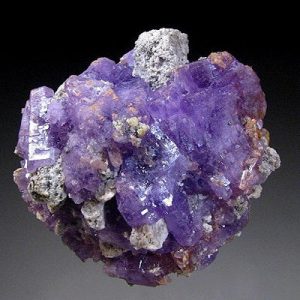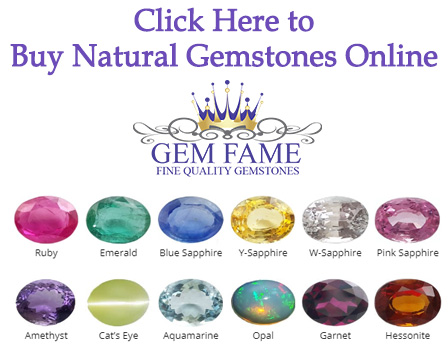Coquimbite
Coquimbite is a rare iron sulfate mineral. Mineral specimens can be very attractive with colors of bright violet to Amethyst purple. Faceted gems are extremely rare and very small due to crystal sizes. Coquimbite is very difficult to facet because it is very soft (2.5) and soluble in water. Facetable crystals were almost non-existant until a recent find at the Javier Mine, Ayacucho Departmen, Peru.
Coquimbite is found in only a few locations including Alcaparrosa Mine, Cerritos Bayos, Calama, El Loa Province, Antofagasta Region, Chile; Copiapó Province, Atacama Region, Chile; Faraglione Nico, Porto Levante, Vulcano Island, Eolie Islands, Lipari, Messina Province, Sicily, Italy; Javier Mine, Ayacucho Department, Peru; Rio Tinto Mines, Minas de Riotinto, Huelva, Andalusia, Spain; and San Rafael District, Emery County, Utah, USA.
| Chemical Formula: | Fe3+2(SO4)3•9(H2O) |
| Hydrated Iron Sulfate | |
| Molecular Weight: | 562.02 gm |
| Composition: | Iron | 19.87 % | Fe | 28.41 % | Fe2O3 |
| Hydrogen | 3.23 % | H | 28.85 % | H2O | |
| Sulfur | 17.12 % | S | 42.74 % | SO3 | |
| Oxygen | 59.78 % | O | |||
| 100.00 % | 100.00 % | = TOTAL OXIDE |
| Crystallography: | Trigonal – Hexagonal Scalenohedral |
| Crystal Habit: | As short prismatic to pyramidal crystals, dominated by {1010}, {1120}, {1011}, {0001}, to 2 cm; massive, granular. |
| Twinning: | None |
| Cleavage: | Imperfect on {1011}; difficult on {1010} |
| Fracture: | Irregular/Uneven |
| Tenacity: | Brittle |
| Moh’s Hardness: | 2.5 |
| Density: | 2.11 (g/cm3) |
| Luminescence: | None |
| Radioactivity: | Not Radioactive |
| Other: | Soluble in cold water; soluble in acids, astringent taste; efforesces in dry air as a white powder |
| Color: | Pale Violet to Amethystine, rarely pale Yellow or pale Green |
| Transparency: | Translucent to Transparent |
| Luster: | Vitreous |
| Refractive Index: | 1.360 – 1.572 Uniaxial ( + ) |
| Birefringence: | 0.0070 |
| Dispersion: | Low |
| Pleochroism: | None |


